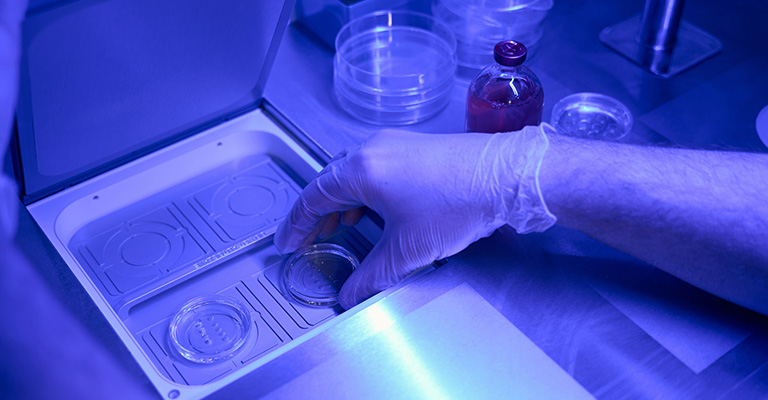Updated by the Progyny Clinical Team — June 2025.
Embryo donation occurs when unused embryos from in vitro fertilization (IVF) treatment are donated from one person or couple to another. IVF often results in extra embryos, which a person or couple may choose to freeze for future use. The extras may be used if the first treatment doesn’t work or to grow their family later. Once a family is complete, however, frozen embryos may remain.
How successful is embryo donation?
The donor embryo will be transferred into the uterus with the hope that it will implant and become a successful pregnancy. Success rates are measured by live births per embryo transfer. It depends on the embryo’s quality, the egg donor’s age, the number of embryos transferred, and the embryo’s developmental stage when frozen. According to data from the CDC, the live birth rate with embryo donation is 43-45% percent.
Screening tests
Patients are typically screened for health problems prior to the retrieval of eggs and sperm to create embryos before undergoing the initial IVF treatment. To become embryo donors, the donors may have to be re-screened at the time of embryo donation to minimize the likelihood of transmitting infectious diseases. Donor embryo recipients also must undergo medical screening and testing.
Associated costs
Embryo donation is often a more affordable and simpler option for people considering donor-assisted reproduction. Embryo donors get no compensation, except for certain expenses, such as required medical screening tests. The total cost can range from around $5,000 to $15,000* and usually covers donor matching, medical screenings, counseling, shipping, medications, and the embryo transfer.
If you have questions, Progyny is here for you. Please contact your Progyny Care Advocate for support.
* Current as of publication date
Disclaimer: The information provided by Progyny is for educational purposes only and is not medical advice. Always consult a qualified healthcare provider for medical guidance.
